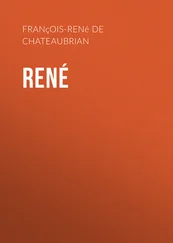François Fénelon - Fenelon's Treatise on the Education of Daughters
Здесь есть возможность читать онлайн «François Fénelon - Fenelon's Treatise on the Education of Daughters» — ознакомительный отрывок электронной книги совершенно бесплатно, а после прочтения отрывка купить полную версию. В некоторых случаях можно слушать аудио, скачать через торрент в формате fb2 и присутствует краткое содержание. Издательство: Иностранный паблик, Жанр: foreign_antique, foreign_prose, на английском языке. Описание произведения, (предисловие) а так же отзывы посетителей доступны на портале библиотеки ЛибКат.
- Название:Fenelon's Treatise on the Education of Daughters
- Автор:
- Издательство:Иностранный паблик
- Жанр:
- Год:неизвестен
- ISBN:нет данных
- Рейтинг книги:4 / 5. Голосов: 1
-
Избранное:Добавить в избранное
- Отзывы:
-
Ваша оценка:
- 80
- 1
- 2
- 3
- 4
- 5
Fenelon's Treatise on the Education of Daughters: краткое содержание, описание и аннотация
Предлагаем к чтению аннотацию, описание, краткое содержание или предисловие (зависит от того, что написал сам автор книги «Fenelon's Treatise on the Education of Daughters»). Если вы не нашли необходимую информацию о книге — напишите в комментариях, мы постараемся отыскать её.
Fenelon's Treatise on the Education of Daughters — читать онлайн ознакомительный отрывок
Ниже представлен текст книги, разбитый по страницам. Система сохранения места последней прочитанной страницы, позволяет с удобством читать онлайн бесплатно книгу «Fenelon's Treatise on the Education of Daughters», без необходимости каждый раз заново искать на чём Вы остановились. Поставьте закладку, и сможете в любой момент перейти на страницу, на которой закончили чтение.
Интервал:
Закладка:
As the curiosity of children is a faculty which precedes instruction, we should be careful to make them profit by it. For example, in the country when they see a mill, they wish to know what it is – here, then, you may shew them how that food is prepared which nourishes man. A little further they perceive reapers – and you must explain to them their occupation; how they sow the grain, and how it multiplies in the earth. In the town they see a number of shops, where various trades are exercised, and various merchandize is sold. Never consider their questions as importunate; they are overtures which nature makes to facilitate instruction – shew them, therefore, that you take pleasure in these questions – for, by such means, you teach them insensibly how every thing is made, which conduces to the comfort of man, and extension of commerce. By degrees, and without any particular study, they become acquainted with every article that is useful, and with the price affixed to each, which is, indeed, the true foundation of economy. This kind of knowledge, which no one should despise, because no one is willing to be cheated from the want of it, is particularly necessary for women.
CHAPTER IV
The ignorance of children, (in whose brain no correct impressions are made,) renders them extremely susceptible, and inclined to imitate every thing they see. It is, therefore, of consequence to set before them none but the very best models of imitation; and to make them acquainted with those, by whose examples they would be profited in following. But as it happens, in spite of all our precautions, that they occasionally witness many irregularities, we must not fail to warn them betimes against the impertinence of certain foolish and dissipated people, whose reputation is scarcely worth preserving: we must shew them how truly miserable and deserving of contempt, are those who abandon themselves to passion, without cultivating their reason. One may also give them, a correct taste, free from affectation, and make them sensible of the true value of modesty and decorum; we must not even abstain from guarding them against probable errors, although by this means we may open their eyes to certain defects in those whom they are taught to respect. We have neither right nor reason to hope that they will remain ignorant on such points, and therefore the best method to pursue, in order to keep them to their duty, is, to persuade them to bear with the faults of others; not to pass too severe a sentence on them, as they often appear greater than they really are – that they are even compensated for by many good qualifications – and that as there is no perfection in this world, they should admire that which approaches the nearest towards it. Lastly, although this advice should not be offered but in extreme cases, we should, nevertheless, engraft on them true principles , and preserve them from imitating all the evil that is set before them.
We must also be on our guard to prevent their imitation of ridiculous people ; whose low and buffoon-like manners have something in them extremely revolting to noble and generous sentiments; we should be apprehensive lest children afterwards assume these very manners; as the warmth of their imagination, and pliability of body, added to the pleasure they seem to take in such diversion, gives them a peculiar aptitude to represent every ridiculous object they behold.
This proneness to imitation, which is natural to children, is the source of infinite mischief when they are delivered up to improper people who are hardly able to restrain themselves before them. But providence has ordained this imitative power, that children may be also capable of applying themselves to what is good and virtuous. Often, without speaking to them, we have only to shew them in others what we would have them do themselves.
CHAPTER V
I think we should often make use of indirect instructions, which are not so tedious and uninteresting as lessons and remonstrances, in order to excite their attention to certain examples which are placed before them.
A person may sometimes ask another, in their presence, "Why do you do so" – and the other may answer – "I do it for such a reason." For example – "Why did you confess your fault?" "Because I should have been guilty of a much greater one by disavowing it with a lye" – and because nothing is more praiseworthy than to say frankly, "I am wrong." Then the first person should commend the one who has thus accused herself – but care must be taken that all this be done without art or affectation, for children have much more penetration than we are aware of – and as soon as they discover any finesse in their teachers, they lose that simplicity and confidence which is natural to their character.
We have before observed that the brain of children, from being at the same time moist and warm, produces continual motion. This softness or pliancy of the brain causes impressions to be easily made, and images of every sensible object to be vividly and strongly imprinted; hence we should be anxious to engrave, as it were, on their minds such characters as are easily formed. But great care must be shewn in the selection of such objects as we wish to impress: for in so small and precious a cabinet, none but the most exquisite furniture should be admitted. Let it be remembered, that at such a tender age, no knowledge should be engrafted but such as we wish to remain there for life. The first impressions that are made, when the brain is so soft and susceptible, are in general the most durable; and in proportion as age hardens the brain, do such impressions become indelible. Hence it is, that in old age we remember distinctly the images of youth, however remote; whereas as age advances we have a fainter recollection of such things as we progressively behold, because the impression has been made on the brain when it is gradually hardening, and filled with other images.
Although we understand how to reason in this manner, we have some difficulty in acceding to it: and yet we absolutely do make use of this very mode of reasoning. For instance, do we not say every day, "My habits are fixed, I am too old to change them, I have been brought up in this way." – Moreover are we not conscious of a singular pleasure in recalling to mind the images of youth? are not the strongest propensities formed at that age? Does not, therefore, all this prove that the first impressions and first habits are the strongest? If infancy be the fittest period for engraving such images on the brain, it must be allowed that it is the least so for the cultivation of reason. That ductility of the brain which causes impressions to be easily formed, being united with extreme heat, produces an agitation which sets all regular application at defiance.
The brain of children may be compared to a lighted wax taper, situated in a place which is exposed to the wind – its flame is perpetually flickering. A child asks you a question, and before you can answer, its eyes are directed towards the cieling: it counts all the figures that are carved there, or all the bits of glass which compose the window: if you wish to bring it back to the first subject of discussion, you vex it as much as if you confined it in prison. Thus great care is required in managing the organs before they assume a determined inclination: answer every question promptly, and leave the child to put others as it pleases. Gratify only the curiosity which it evinces, and lay up in the memory a mass of sound materials. The time will come, when these impressions will be regularly arranged, and the brain having more consistency, the child will reason on the consequences. Nevertheless, be attentive to correct when the reasoning is fallacious; and to convince it, without embarrassment, as an opportunity offers, in what a wrong consequence consists.
Читать дальшеИнтервал:
Закладка:
Похожие книги на «Fenelon's Treatise on the Education of Daughters»
Представляем Вашему вниманию похожие книги на «Fenelon's Treatise on the Education of Daughters» списком для выбора. Мы отобрали схожую по названию и смыслу литературу в надежде предоставить читателям больше вариантов отыскать новые, интересные, ещё непрочитанные произведения.
Обсуждение, отзывы о книге «Fenelon's Treatise on the Education of Daughters» и просто собственные мнения читателей. Оставьте ваши комментарии, напишите, что Вы думаете о произведении, его смысле или главных героях. Укажите что конкретно понравилось, а что нет, и почему Вы так считаете.












